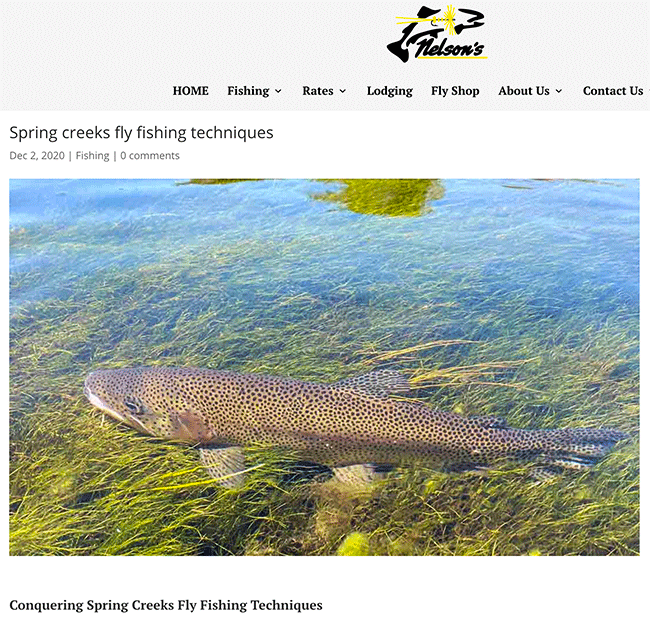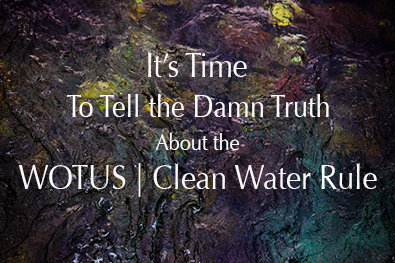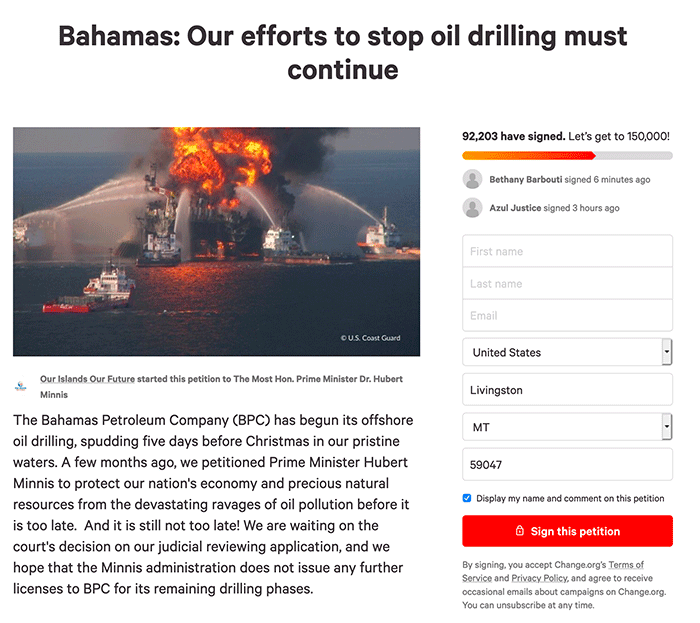
There’s a fair bit of discussion ongoing these days about exploratory drilling in and near the Bahamas, and naturally in this day and age there’s a fair amount of opposition to drilling there given the fragile, somewhat unique, and recovering post-hurricane ecosystems in the area.
An alliance has formed in opposition – Our Island Our Future – and they have a petition up to garner world-wide support against further drilling – read and sign here (screen shot above).
For the record, we as a team have historically supported responsible energy production; as much as some folks want you to believe today that the fossil fuel spigot can simply be turned off and life around the world will be hunky dory thereafter, that’s some of the most imbecilic, magical thinking you’ll find anywhere, and not even close to being grounded in economic or scientific fact. There are a host of rational options to cover energy demands (ie thorium reactors anyone?) – we’ll see if rationale thought in the energy sector will prevail.
There’s a time and place for resource development; drilling for oil in the Bahamas ain’t it.

Today over on the Older Bolder Life I’ve posted this nifty recipe for a damned tasty, homemade chorizo recipe – Chorizo Number 2 or Tex Mex Chorizo, one that we’ve been making for years at home and using in a host of recipes.
If you’ve not picked a simple home meat grinder (the one I talk about in the post was about $70 online a couple of years ago) you probably should; it won’t process the 3 elk you and your buddies took this year, but it handles most light home grinding tasks with ease, and is a cinch to store, set up, and clean.
And by the way this one is great sautéed up with some poblanos and mushrooms (as in the image above) for loaded huevos rancheros (recipe to follow in the next few weeks).
Cheers.
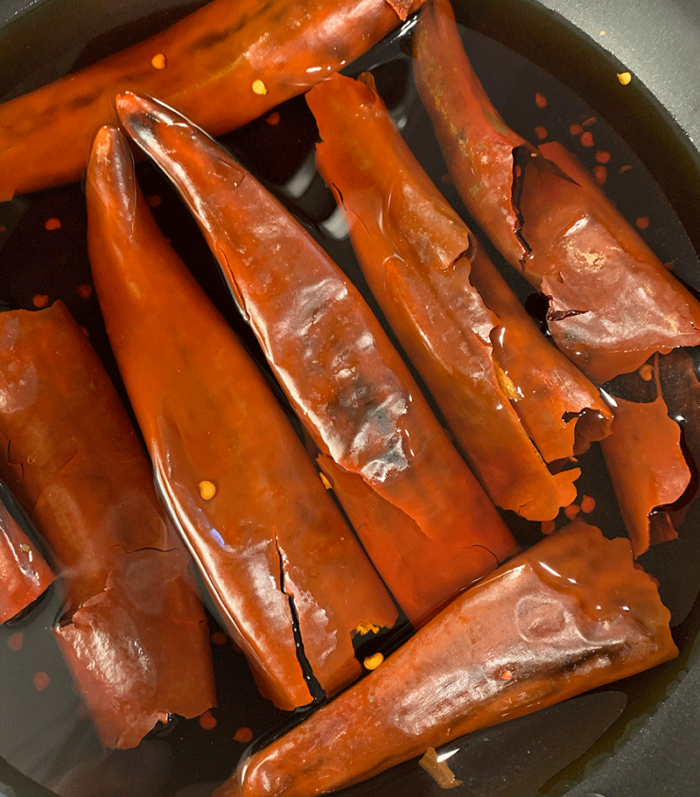
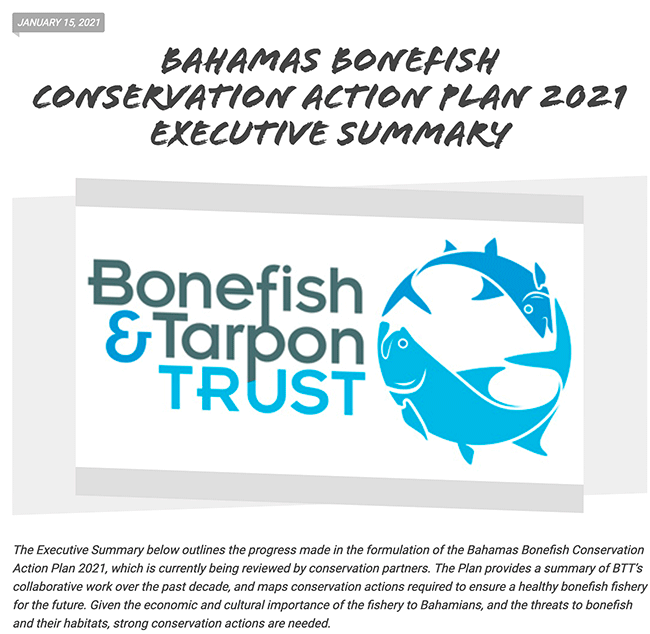
A hearty attaboy to the good folks at Bonefish and Tarpon Trust for their collaborative work over the past decade fostering united conservation efforts targeting bonefish in the Bahamas; they’ve recently released the Executive Summary of their Bahamas Bonefish Conservation Action Plan 2021 which is being reviewed by conservation partners now (you can read at the link).
Attaboy.
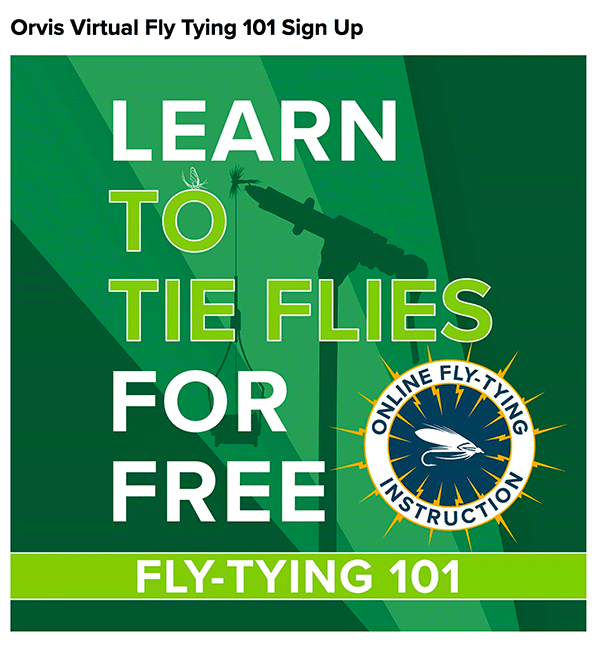
Orvis, who has done more than any other company in the country (probably the world) to get people of all stripes and ages involved in fly fishing through their Fly Fishing and Fly Tying 101 programs (free at the introductory level), is taking their Fly Tying 101 program virtual this year. The schedule is below, and you can sign up here for pre-class materials lists and access to the videos if you miss the live presentations.
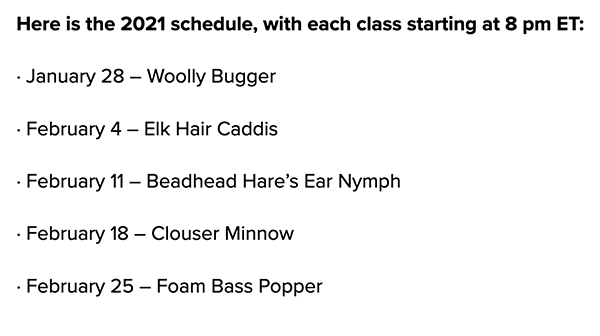
Disclosure – my lovely wife is an area manager for Orvis in Texas, and yes, the H3 is an amazing rod, but I still fish as well with beloved Winston and Scott rigs too…
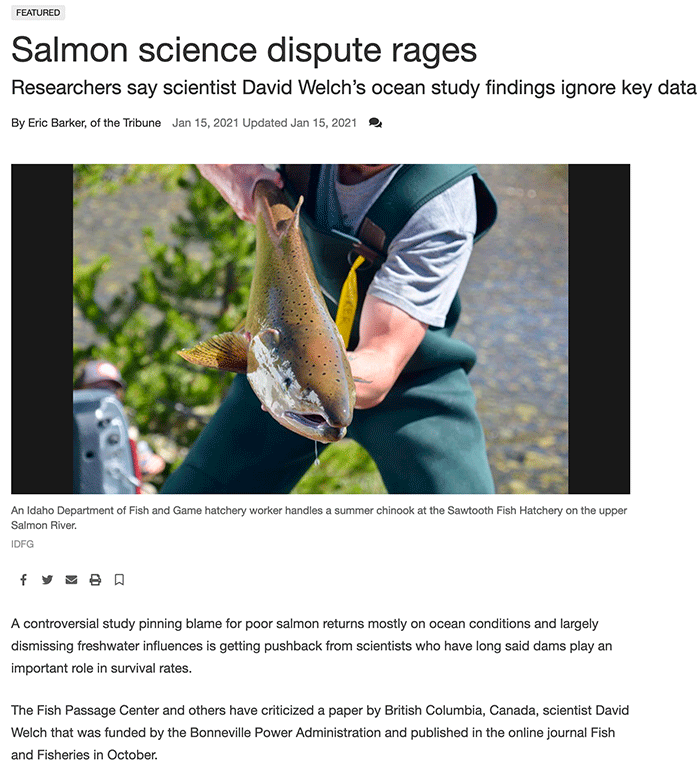
There’s been an a bit of a dustup in the world of salmon science of late, highlighted in this article in the Lewiston Tribune by Eric Barker. The core of the dispute is captured in his opening paragraphs –
A controversial study pinning blame for poor salmon returns mostly on ocean conditions and largely dismissing freshwater influences is getting pushback from scientists who have long said dams play an important role in survival rates.
The Fish Passage Center and others have criticized a paper by British Columbia, Canada, scientist David Welch that was funded by the Bonneville Power Administration and published in the online journal Fish and Fisheries in October.
Welch and his colleagues compared smolt-to-adult return rates from chinook runs in rivers up and down the west coast of North America and said survival has fallen dramatically in dammed and undammed rivers, and in rivers that are largely pristine and those that have been heavily altered…
The Welch article (A synthesis of the coast-wide decline in the survival of West coast Chinook Salmon (Oncorhynchus tshawytscha, Salmonidae) can be perused in full at the link, and the countering response from the Fish Passage Center team can be read in full here.
While not a salmon fisheries scientist, given my personal scientific training and career in the sciences, I suspect that West coast salmon reality probably incorporates elements from both opinions represented, and have offered the data today for a couple of reasons.
One, for those interested in the continuing PNW/West coast salmon (and steelhead) slow motion disaster we’re all watching, understanding the core issues at hand will be central to creating meaningful interventions and solutions. And two, despite what you might hear and see represented in today’s world, genuine science is by no means a static and monolithic process – genuine science involves disagreements which lead to alternative hypotheses/explanations of what’s observed, followed by different testing models to confirm these hypotheses. Anyone telling you “the science is already settled” for just about any issue is most often trying to sell you something else.
Caveat emptor.
Image via the linked article in the Lewiston Tribune.



